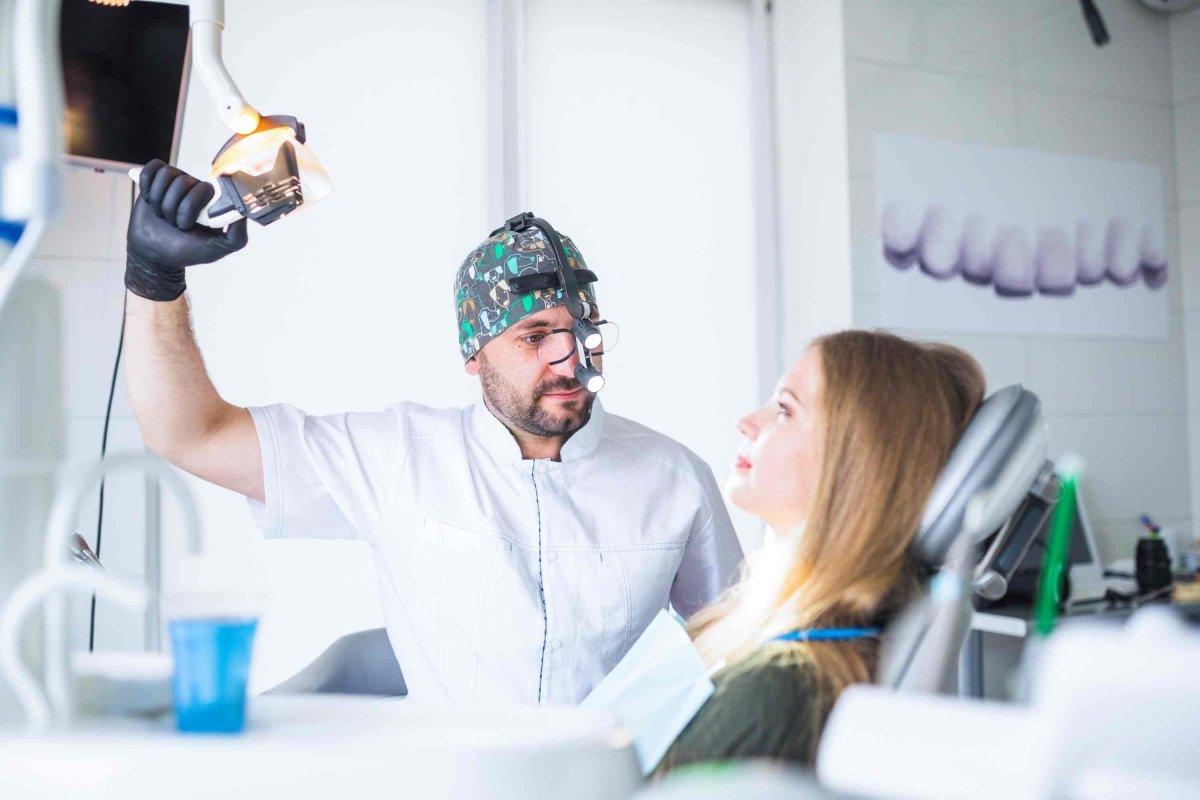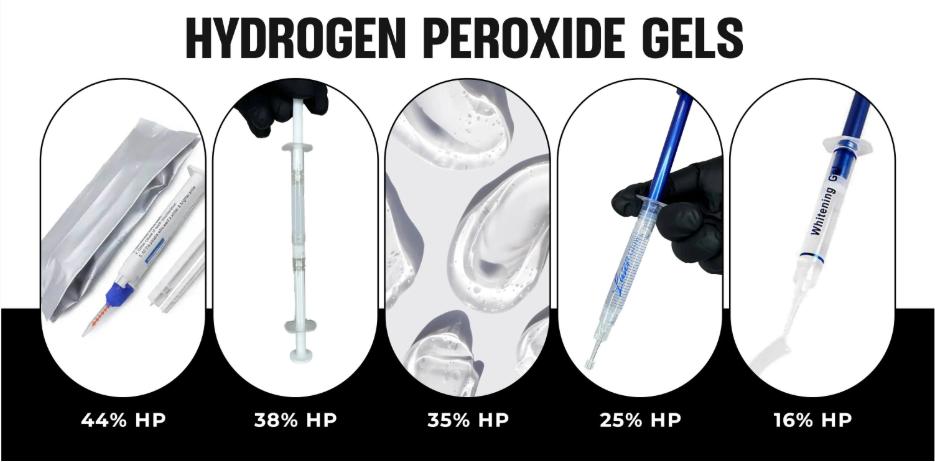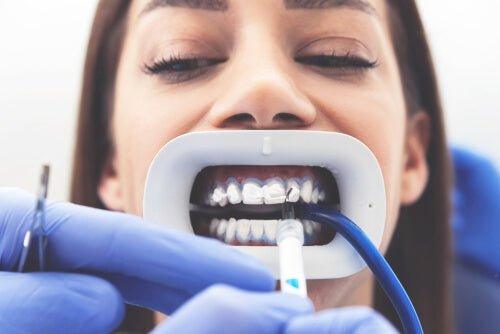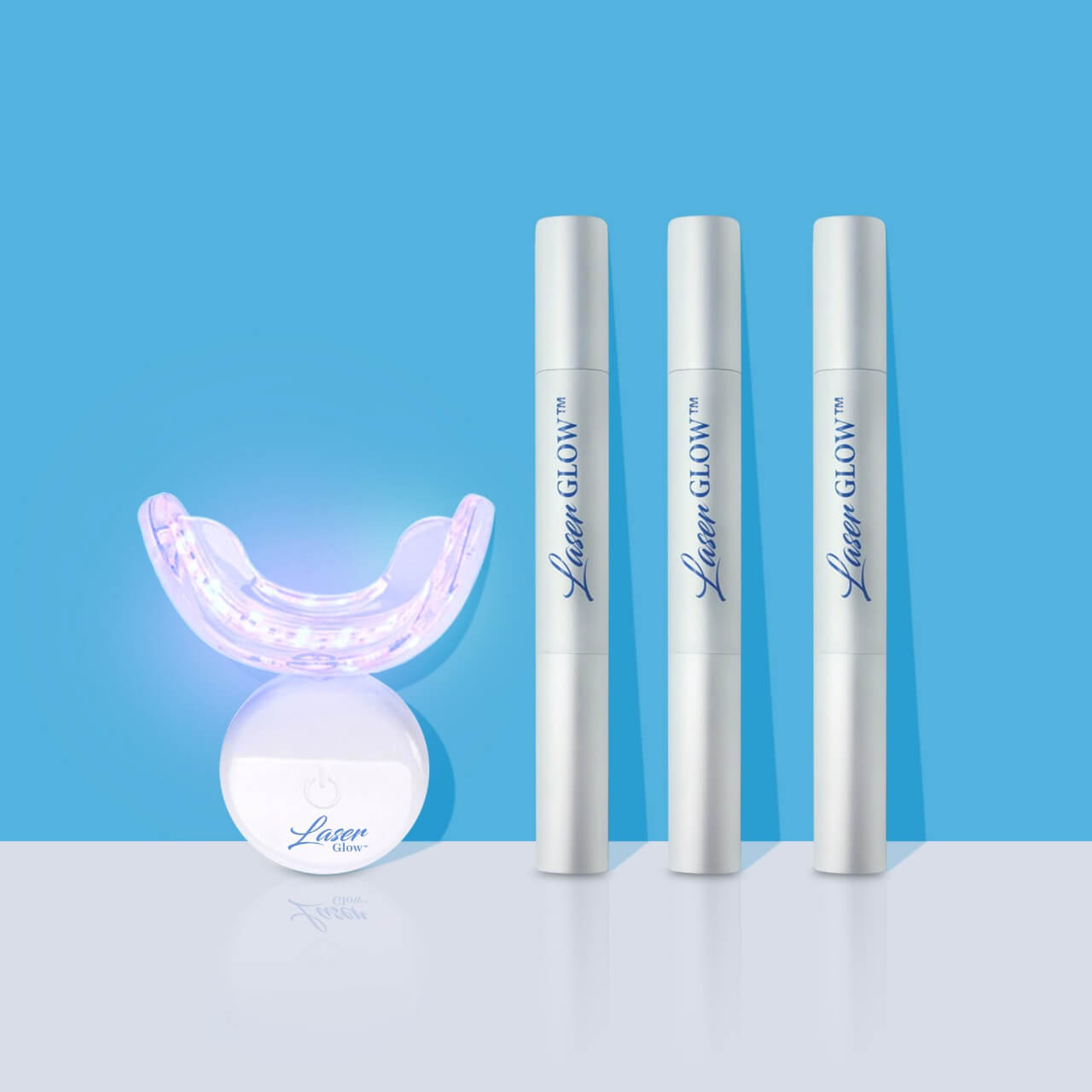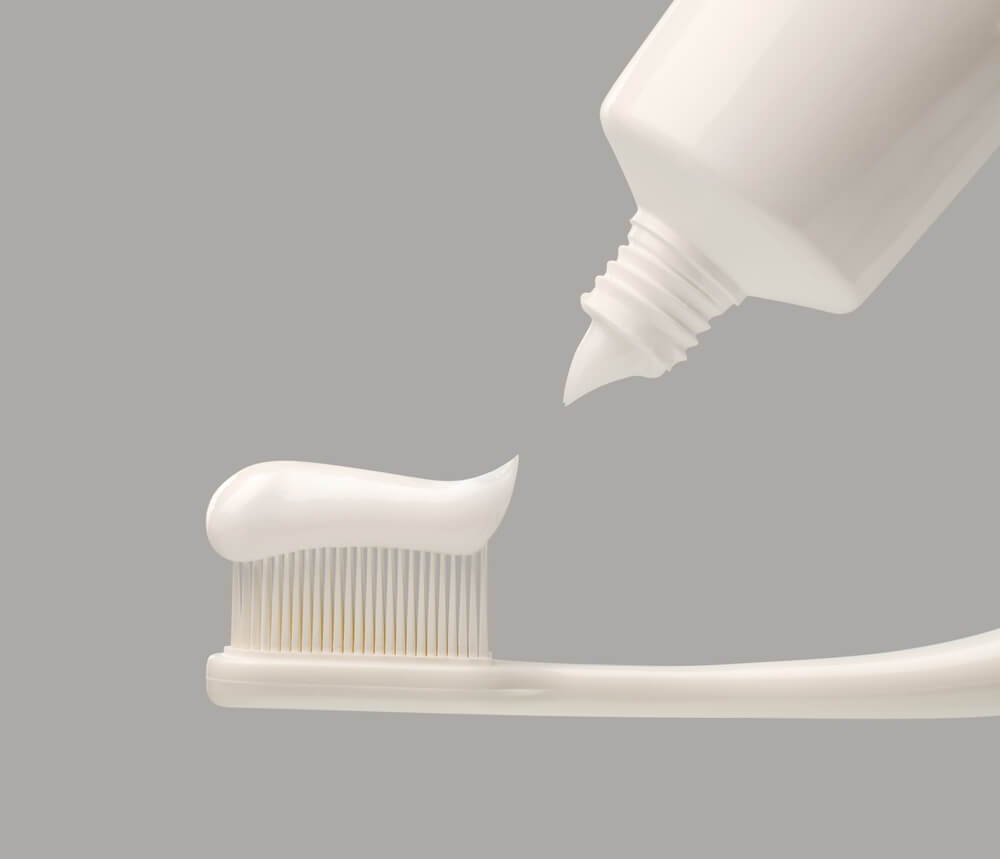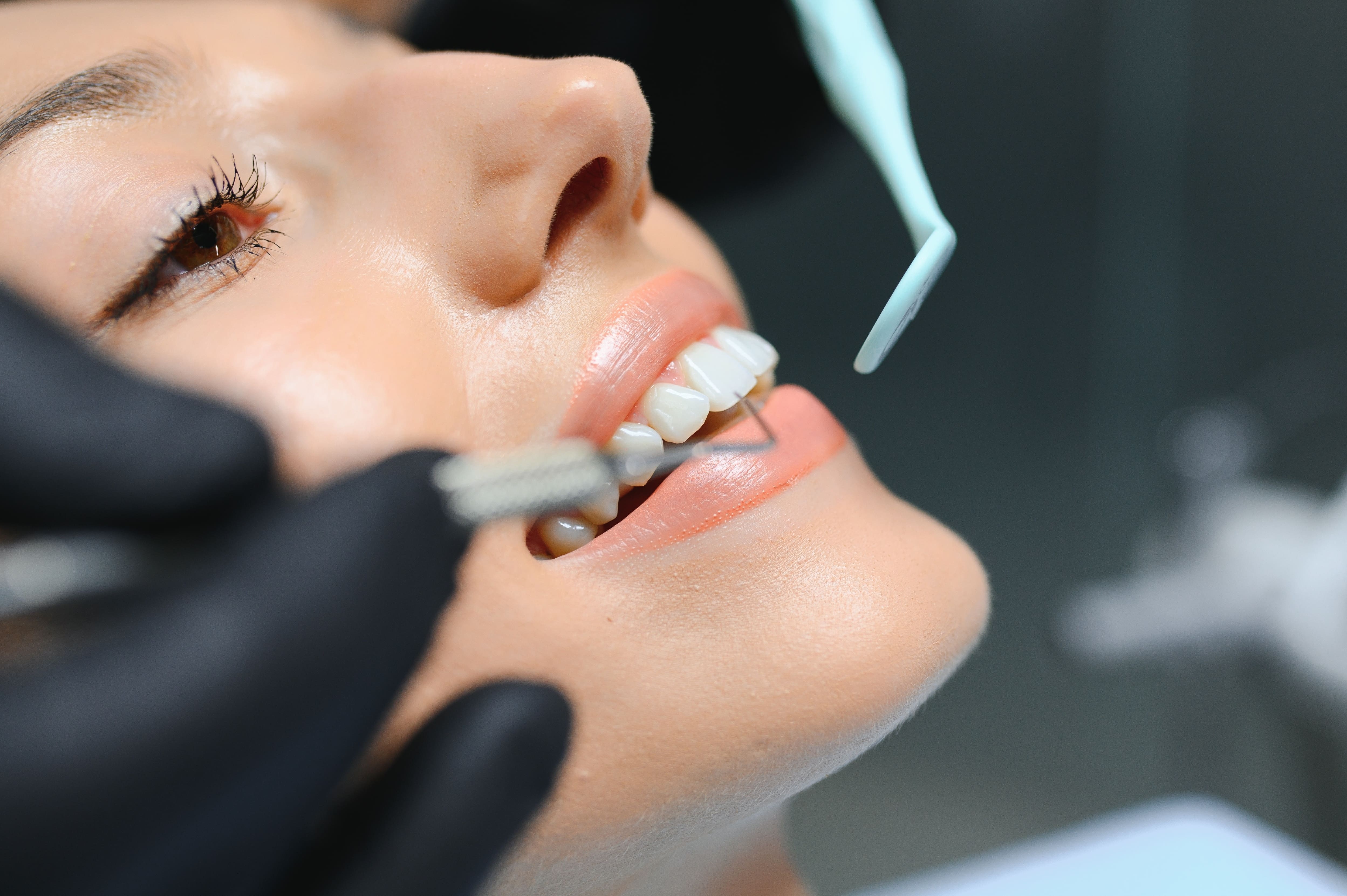There's something transformative about a bright, confident smile - it's a universal sign of health and beauty that resonates with us all. Perhaps this is why the allure of in-office teeth whitening continues to capture the hearts of those yearning to brighten their smiles. With professional guidance, attaining that coveted sparkle has never been more accessible. This introduction is where those aspirational desires meet teeth whitening tips rooted in expertise - where you’ll learn how a visit to your dentist can elevate your smile and, just perhaps, your spirit.
Key Takeaways
- Discover why in-office teeth whitening is a superior choice for a radiant smile.
- Learn how professional treatments outshine over-the-counter options in safety and effectiveness.
- Gain valuable teeth whitening tips straight from dental experts.
- Understand the nuances of what to expect from your whitening journey - from preparation to results.
- Embrace reliable advice on maintaining your bright smile post-treatment.
- Recognize the importance of professional guidance to ensure optimal outcomes.
Understanding In-Office Teeth Whitening
Exploring the world of dental office teeth whitening unveils a range of benefits and considerations for those seeking a brighter smile. With professional guidance, the transformation of one's smile can be both dramatic and confidence-boosting. Let's delve into what in-office teeth whitening entails and how it stands apart from DIY methods.
What is In-Office Teeth Whitening?
In-office teeth whitening is a cosmetic dental procedure performed by a licensed professional. This process involves applying a high-concentration bleaching gel to the teeth, which is often activated with a special light or laser to accelerate the whitening process. It is a popular choice for those looking for immediate results.
Benefits of Choosing Professional Teeth Whitening
Choosing to undergo professional teeth whitening comes with multiple advantages. The key professional teeth whitening benefits include the speed of the procedure, with results visible in just one session, as well as the effectiveness of treatment, which can lighten teeth several shades. Additionally, safety is a significant factor, as the procedure is supervised by dental professionals who ensure that the health of your gums and teeth is not compromised.
How In-Office Whitening Compares to At-Home Alternatives
When considering teeth whitening, many clients weigh the options between in-office procedures and at-home teeth whitening alternatives. Though at-home kits can be convenient, they typically cannot match the immediate and pronounced results of professional treatments. Here is a detailed comparison:
| Criteria | In-Office Whitening | At-Home Alternatives |
|---|---|---|
| Result Speed | Immediate | Several Weeks |
| Efficacy | High (Up to 8 Shades Lighter) | Moderate (1-3 Shades Lighter) |
| Professional Supervision | Yes | No |
| Cost | Higher Initial Investment | Lower Initial Cost |
| Duration of Results | Long-lasting with Proper Care | Varies; Shorter than Professional |
| Safety | Monitored by Dentist | Limited Professional Oversight |
The table underscores the prominence of in-office treatments in terms of efficiency, outcome, and safety. Nonetheless, maintaining these results requires good oral hygiene practices and potentially, future touch-up appointments.
In-Office Teeth Whitening: The Procedure Explained
Embarking on a teeth whitening procedure can brighten your smile and boost your confidence. This section demystifies the steps involved in professional teeth whitening treatment, including what to expect during an initial consultation, the in-office procedure itself, and the aftercare necessary for preserving whitening results.
Initial Consultation and Exam
Before the teeth whitening treatment begins, an initial consultation with a dental professional is key to assess your oral health and determine the suitability for the procedure. During this consultation:
- Your dentist will examine your teeth and gums for any underlying issues that may affect the outcome.
- You'll discuss your dental history, any restorations you have, and your desired level of teeth brightness.
- Based on the assessment, your dentist will recommend a teeth whitening procedure tailored to your needs.
The Whitening Process Step by Step
Once you're deemed a good candidate for teeth whitening, the actual treatment will unfold as follows:
- Preparation: Your dentist will protect your gums using a barrier substance and insert a retractor to keep your cheeks and lips away from your teeth.
- Application: A professional-strength bleaching gel is meticulously applied to the surface of your teeth.
- Activation: Depending on the system used, a special light may be employed to enhance the effectiveness of the whitening agent.
- Removal: After a predetermined amount of time, the gel is removed, and the results are immediately visible.
- Final Touches: The dentist will provide a post-treatment evaluation to ensure your satisfaction with the results.
Aftercare: Preserving Your Whitening Results
Following the in-office treatment, proper aftercare is crucial to maintain and extend the life of your brightened smile. You can preserve your teeth whitening results through:
- Avoiding stain-causing foods and beverages, like coffee, red wine, and berries, especially in the first few days after treatment.
- Maintaining a diligent oral hygiene routine, including brushing twice daily and flossing.
- Visiting your dentist regularly for checkups and touch-up treatments if necessary.
- Using a whitening toothpaste approved by dental professionals to help remove surface stains and keep teeth looking their best.
By adhering to these aftercare steps and partnering with your dentist, you can ensure your teeth remain vibrant and healthy long after your office visit.
Types of Professional Teeth Whitening Systems
When it comes to achieving a luminous smile, the dental industry offers several professional teeth whitening systems that promise transformative results. Among these, LaserGlow teeth whitening stands out as a highly sought-after service, offering significant shade improvement in a single office visit. Other chairside teeth whitening options also compete in the market, each with unique formulations and techniques to match individual preferences and dental health conditions.
The effectiveness of these systems often comes down to the synergy between the active whitening agents and the precise application methods. Cutting-edge light acceleration technology complements potent gel formulations, catalyzing the bleaching process with fines interplay of innovation and efficiency. The duration of treatment and the longevity of results also vary, as patients navigate through options seeking an ideal balance of convenience, comfort, and outcome.
| System | Active Ingredient | Application Technique | Duration | Expected Outcome |
|---|---|---|---|---|
| LaserGlow | Hydrogen Peroxide | Light-Activated Gel | Approx. 45 mins | Up to 4 shades brighter |
| Chairside Bleaching | Varies (Hydrogen Peroxide or Carbamide Peroxide) | Custom Trays & LED Acceleration | 30-60 mins | 6-10 shades improvement |
| Laser Teeth Whitening | Hydrogen Peroxide | Laser Energy Acceleration | 20-60 mins | 5-6 shades improvement |
Testimonials from those who have experienced the magic of professional whiteners often speak volumes about their efficacy. With the prevailing goal of a radiant smile, patients extol the virtues of these treatments through vivid accounts of newfound confidence, eliciting real-world validation of the systems' worth. LaserGlow teeth whitening reviews frequently highlight the rapid transformational effect, while tales of other chairside whitening services emphasize the tailored approach and comfort provided by such personalized procedures.
To conclude, each of the professional teeth whitening systems on the market aims to bring bright smiles to the forefront through innovative technologies and powerful agents. Responsibility lies in the hands of both dental professionals and patients to choose the most suitable system that not only illuminates but also preserves the natural integrity of one's teeth.
Pre-treatment Considerations for Teeth Whitening
Embarking on the journey of teeth bleaching is an exciting prospect for many looking to enhance their smile. However, there are vital pre-treatment considerations and assessments of teeth whitening candidacy that must be discussed to ensure safety and effectiveness. Key factors like oral health status, dental history, sensitivity levels, and lifestyle factors play a significant role in determining a person's suitability for the procedure.
Indeed, not everyone is an ideal candidate for teeth whitening treatments. Situations such as severe tooth and gum sensitivity or having restorations like crowns or veneers may influence the whitening process. In the preparation phase, dental professionals meticulously evaluate these aspects to customize the best treatment plan. The following table encapsulates primary factors to consider before undergoing teeth whitening:
| Factor | Description | Impact on Whitening Candidacy |
|---|---|---|
| Oral Health Status | Current condition of teeth and gums, including any signs of decay or gum disease. | Must be addressed prior to treatment to avoid complications. |
| Dental Work History | Presence of fillings, crowns, implants, or veneers could affect whitening uniformity. | Whitening may not be recommended or may require special methods. |
| Sensitivity Levels | Extent of tooth or gum sensitivity that may react to whitening agents. | May necessitate use of desensitizers or alternative treatments. |
| Lifestyle Habits | Consumption of stain-causing food, drinks, or tobacco products. | Could influence the longevity of whitening results and might prompt additional care measures. |
When considering teeth whitening, it’s not merely about achieving a brighter smile; it's also about maintaining it. Thus, patients are advised to contemplate these pre-treatment elements and engage openly with their dental provider to outline the most effective and sustainable teeth bleaching approach suited to their unique dental profile.
Maximizing Comfort: Managing Sensitivity During Whitening
When it comes to in-office teeth whitening, achieving a radiant smile should not come at the cost of comfort. Sensitive teeth can turn what should be a pleasant cosmetic enhancement into a less than ideal experience. It’s crucial to understand the causes of sensitivity and how we can employ techniques to manage it effectively.
Common Causes of Sensitivity
Sensitivity during teeth whitening can stem from several sources. Enamel erosion, gum recession, and the whitening agents themselves may exacerbate the issue. These can expose the dentin layer or dental nerves, leading to that familiar twinge of discomfort. Recognizing these triggers plays a pivotal role in developing measures to maximize comfort and minimize discomfort.
Tips to Minimize Discomfort
- Avoid Extreme Temperatures: Sticking to lukewarm foods and beverages can prevent sudden sensitivity spikes.
- Use Desensitizing Products: Incorporate desensitizing toothpaste into your dental care routine before and after whitening.
- Potassium Nitrate Gel: Application of potassium nitrate gel can help in managing sensitivity by numbing the nerve endings.
- Short Breaks Between Sessions: Allowing time in between sessions can lower the risk of sensitivity buildup.
These steps, complemented by professional guidance, can be instrumental in ensuring that patients with sensitive teeth get through their whitening journey with ease.
Post-Whitening Care for Sensitive Teeth
After the whitening process, special care should be taken to sustain not only the effects but also to continue managing sensitivity. This involves a regimen tailored for sensitive teeth aimed at long-term comfort.
| Care Aspect | Immediate Aftercare | Long-term Management |
|---|---|---|
| Dietary Adjustments | Avoid acidic or highly pigmented foods and beverages for the first few days post-treatment. | Maintain a balanced diet to preserve enamel, limiting high-acidic food consumption. |
| Oral Hygiene | Use a toothbrush with soft bristles and toothpaste designed for sensitive teeth. | Regular dental check-ups and cleaning sessions to monitor teeth's response to treatment. |
| Lifestyle Habits | Refrain from habits like smoking to prevent heightened tooth sensitivity. | Continue avoiding tobacco use and reduce other habits that can undermine tooth enamel strength. |
Proper post-whitening care is fundamental in extending the life of your whitened teeth while still maintaining a comfortable oral health environment.
In Office Teeth Whitening for Different Needs
Each smile is unique, and in-office teeth whitening treatments recognize the importance of addressing diverse dental needs. Professionals provide customized care plans to ensure that every patient can enjoy a rejuvenated and bright smile, whether they're combating heavy dental staining or accommodating sensitive teeth. Proper long-term maintenance ensures the longevity of that coveted luster.
Whitening Solutions for Heavy Staining
When it comes to heavy staining, professional whitening services use potent bleaching agents that penetrate the enamel to break down deep discoloration that at-home products simply cannot reach. For those with significant color changes due to factors like aged restorations or prolonged tobacco use, a tailored in-office whitening treatment can provide transformative results efficiently.
Tailored Treatments for Sensitive Teeth
Finding a balance between effective teeth whitening and comfort for those with sensitive teeth is key. Dentists customize treatments, reducing peroxide concentrations and applying protective substances to the gums, ensuring a comfortable experience. Those with sensitivity concerns should openly discuss with their dentist to receive a tailored treatment plan that addresses their apprehensions while achieving aesthetic goals.
Long-Term Whitening Maintenance Strategies
Maintaining the results of an in-office whitening procedure requires a commitment to long-term maintenance. Dental professionals may suggest wearing custom-fitted whitening trays at home, periodic in-office touch-ups, and adherence to a strict oral hygiene regime. Incorporating fluoride-rich products and avoiding stain-inducing food and beverages are also recommended strategies to extend the brilliance of professionally whitened teeth.
Teeth Whitening Safety: What You Need to Know
When it comes to achieving a brighter smile, teeth whitening safety should never be overlooked. Many individuals have queries about what to know about teeth whitening to ensure they are making informed decisions. It's critical to understand that professional guidance on whitening safety is essential for not just an effective but also a secure whitening experience.
Dental professionals adhere to stringent regulatory standards to maintain patient safety during teeth whitening procedures. Utilizing approved products and protocols, they help mitigate risks associated with teeth whitening chemicals. This section aims to dispel common myths and answer prevalent concerns, ensuring you have the knowledge to proceed with confidence.
- Understanding the chemicals used and their concentration levels
- Recognizing the importance of a customized treatment plan
- Mitigating gum and tooth sensitivity with proper precautionary measures
- Following post-whitening care instructions from your dentist
| Concern | Professional Approach | Safety Tips for Patients |
|---|---|---|
| Chemical Burns | Use of precision application and protective barriers | Communicate any discomfort immediately to the dentist |
| Tooth Sensitivity | Assessment of pre-existing sensitivity and appropriate product selection | Avoid hot or cold foods post-procedure as recommended |
| Overbleaching | Customized whitening schedule to prevent overuse | Adhere to the advised number of sessions |
| Allergic Reactions | Patch tests and review of patient's medical history | Report any past allergies or adverse reactions to dental materials |
Remember, teeth whitening safety is not just in the hands of your dental professional. As a patient, you play a pivotal role in ensuring your own safety by following professional guidance and being vigilant about the whitening safety measures put forward.
Conclusion
The journey to achieve lasting brightness and a dazzling smile is best undertaken with expert guidance on teeth whitening. By choosing in-office teeth whitening procedures, you are not only embracing a professional approach but are also ensuring that your smile is entrusted to those who understand its value and intricacies. Throughout this article, we have underscored the superiority of professional treatment compared to do-it-yourself methods, highlighting the equal parts of science and artistry that your dental professional uses to enhance your smile.
Opting for a professional procedure yields immediate results with efficacy that stands the test of time, setting it far above the temporary effects of over-the-counter products. The journey to a whiter smile is marked by safe practices, advanced whitening systems like Zoom, and customized treatments for individual needs, ensuring exceptional outcomes for every patient. Investment in a professionally guided whitening session is not just about the immediate transformation but about embracing a solution that promises durability and satisfaction.
As we close, remember that the brilliance of your smile post-whitening must be maintained through diligent aftercare. Following your dentist's advice on aftercare is crucial to sustain that bright, white smile for as long as possible. Reflecting on your whitening journey, know that the steps you've taken today lay the foundation for a future where your smile continues to shine brightly, confidently, and beautifully.
FAQ
What is In-Office Teeth Whitening?
In-office teeth whitening is a professional dental procedure designed to brighten and whiten your smile effectively and quickly. Under the supervision of dental professionals, it uses stronger whitening agents than over-the-counter products, providing noticeable results in just one session.
What are the Benefits of Choosing Professional Teeth Whitening?
Professional teeth whitening offers several benefits, including immediate and long-lasting results, a safe and controlled environment, supervision by trained professionals, and customizable treatment plans tailored to your dental needs and aesthetic goals.
How Does In-Office Whitening Compare to At-Home Alternatives?
In-office whitening is generally faster, more effective, and provides more dramatic results compared to at-home alternatives. The professional-grade bleaching agents used by dentists are more potent, and the procedure is carefully monitored for safety and comfort. At-home alternatives may be more convenient and cost-effective but typically require more time to achieve subtler results.
What Does the Teeth Whitening Procedure Involve?
The procedure typically involves an initial consultation and exam to determine if you're a good candidate, followed by the actual whitening treatment. The whitening process involves applying a strong bleaching agent to the teeth, which is then activated by a special light or laser to enhance its effectiveness.
How Should I Care for My Teeth After Whitening?
After teeth whitening, it's important to follow your dentist's aftercare instructions. This may include avoiding foods and drinks that can stain your teeth for a few days, practicing good oral hygiene, and possibly using a desensitizing toothpaste if you experience sensitivity.
Are There Different Types of Professional Teeth Whitening Systems?
Yes, there are various professional teeth whitening systems such as LaserGlow teeth whitening and other chairside options. These systems vary in terms of active ingredients, application techniques, and expected results.
What Should I Consider Before Getting Teeth Whitening?
Before teeth whitening, consider your current oral health, any previous dental work, teeth and gum sensitivity, and lifestyle habits like smoking or coffee consumption, as these factors can influence the outcome and longevity of your whitening results.
How Can I Manage Sensitivity During Teeth Whitening?
To manage sensitivity, your dentist may recommend using a desensitizing toothpaste before and after the procedure, avoiding extreme temperature foods and drinks, and sometimes a lower concentration of the whitening agent during the treatment.
What Tailored Treatments are Available for Sensitive Teeth?
Dentists can provide tailored treatments for sensitive teeth, including the use of lower-concentration bleaching agents, shorter treatment times, and application of desensitizing products before and after whitening to reduce discomfort.
What are Long-Term Whitening Maintenance Strategies?
To maintain whitening results long-term, implement strategies such as avoiding stain-causing foods and beverages, maintaining excellent oral hygiene, using whitening toothpaste, and scheduling regular dental cleanings and touch-up treatments as recommended by your dentist.
What Should I Know About Teeth Whitening Safety?
It's important to have your teeth whitened under professional guidance. Dental practitioners use approved bleaching agents, follow safety protocols, and customize treatments to each individual to help ensure safety and effectiveness. Discuss any concerns with your dentist before the procedure.


